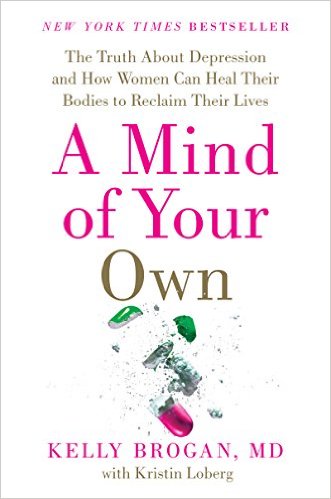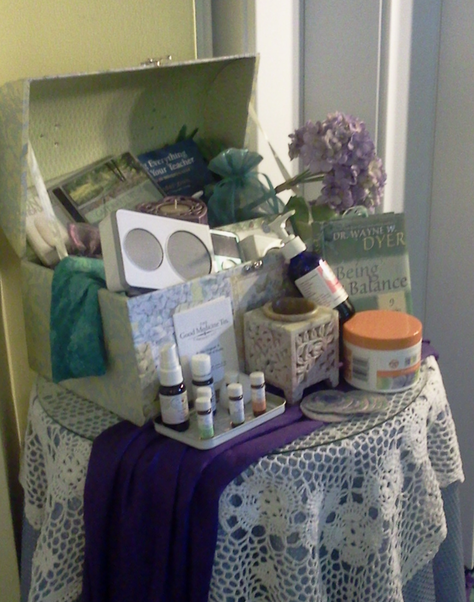|
Because so many caregivers are also dealing with issues of depression, and about two thirds of caregivers are women, when this book came to my attention I felt a deep desire to share it with everyone who might find it of benefit. Even though it is focused specifically toward women, I believe men can find wisdom and answers here as well.
The book is titled, "A Mind of Your Own" by Kelly Brogan, MD. If you would like more information, please visit her page at Amazon, here: amzn.to/2eyamrT 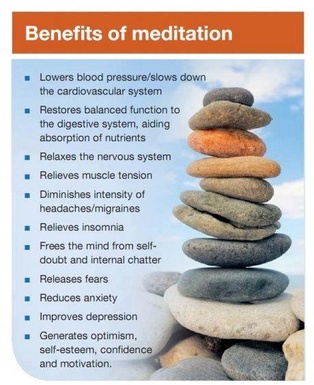 I have written often of the benefits of meditation, particularly when combined with music as a guided meditation experience. Now there is increasing evidence from mainstream medical research of what has been understood for thousands of years by wise teachers of many traditions: meditation is great for people! The truly excellent thing about meditation is that anyone can do it, pretty much anywhere. It is easy, free (or very inexpensive if you choose to buy CDs or download guided versions), is proven as effective as pharmaceutical aids in reducing depression and stress, and has no side effects other than an increased sense of well-being and peacefulness. Click here to see the research done at Johns Hopkins investigating meditation as anti-depressant. What's not to love about that? The Mayo Clinic also published a newsletter article titled "Meditation: A simple, fast way to reduce stress" which gives an great overview of the subject . Various forms of meditation have been taught, mostly in eastern cultures, and the practice has been growing by leaps and bounds in the west over the past thirty years or so. There have been a number of pioneeers in bringing the practice of mindfulness-based stress reduction (MSBR) to the west, including Jon Kabat-Zinn who founded the Stress Reduction Clinic and Center for Mindfulness in Medicine, Health Care, and Society at the University of Massachusetts Medical School. His clinic was featured on the public television series Healing and the Mind with Bill Moyers in 1993. Meditation has such incredible benefits that I believe everyone can find some help by practicing it. In my own experience as a caregiver, meditation and music, combined with fervent and frequent prayer, saved my sanity when it was hanging by a thread. I find it compelling that the list of benefits meditation offers so exactly corresponds to symptoms many (or most) caregivers experience. The only mystery to me is why more caregivers don't use this incredible tool for balance and strength. Which is why I am making it my mission to get this information out to those who need it through this website & blog, by writing, speaking, teaching, and otherwise promoting it. How often is there a perfect solution to so many of our everyday stresses just waiting for us to sit down and get quiet long enough to find its gifts? If you'd like to explore the ideas and resources for meditation, please visit my Meditation and Music page on this site and also take a look at the ideas for Self-care and Caregiver Resource Store. I will also be publishing a book which further details resources and tools for caregivers: Sanity Savers for Caregivers at the End of Their Rope. You can add your name for an announcement of publication, which is targeted for March 2014. If you would like to read a chapter from the book about the uses of music and meditation, click here. I encourage you to explore the idea of various forms of meditation and find what appeals to you personally. In my 17 years of caregiving, music and meditation were the brightest jewels in the caregiver crown. Try it out. You have nothing to lose and so very much to gain! 3/21/2013 Caregiver's Self-Care Comfort Kit"You give but little when you give of your possessions. It is when you give of yourself that you truly give." ~Kahlil Gibran 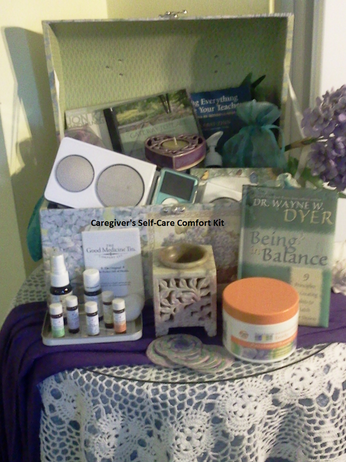 Caregiver's Self-Care Comfort Kit Caregivers are, by their very definition giving people. They do give of themselves, sometimes for many years, faithfully supporting their care-receiver. It turns out that most caregiving roles are more a marathon than a short sprint, so one has to be prepared with the strength and stamina to continue. Quite often caregivers find themselves battling their own chronic stress, burnout, depression, health problems, relationship challenges, and other negatives to quality of life. It is, therefore, of the utmost importance to find ways to reduce the stress, relax, disengage for a time of respite and renewal. I've spoken of this many times in the past year, even giving recommendations to create a Caregiver Comfort Drawer for those emergencies when you need a little extra TLC. However, in the previous posts, I didn't include a photo of the kinds of things I was recommending, and a photo is, as the saying goes, worth a thousand words. So, today, I am giving you a glimpse into my own self-care comfort kit, a photo tour, and a list of the types of things I included that worked for me. I realized, especially toward the end of my mother's life, that this comfort kit needed to be mobile, rather than in a drawer at home. That way, my visits to Mom could include pampering for us both. I hope you will find the suggestions helpful and that some of them will resonate with you. Please do find something to help you deal with the stress levels. It is not being self-indulgent to do so -- it may save your sanity, and perhaps even your very life! Here is a list of items my comfort kit contains, by category: Aromatherapy: Oil Lady Aromatherapy Good Medicine Tin, which includes 5 essential oils, pure organic jojoba to blend them, a lavender mist bottle, and instructions on how to use them in various ways, such as in a diffuser, in the shower/bath, in self-massage, hand massage, etc. These are simply wonderful in all kinds of situations, to calm & balance oneself and reduce stress. I give them my highest recommendation. They also sell a Sweet Sleep Kit with the lavender mist, and lavender oil, along with natural tranquilizer oil, which is great for those nights when sleep eludes you or your care-receiver. I also have a diffuser in my kit. Mine uses tea light candles, so must be attended at all times, but there are electric ones as well which can be set to low temperatures. In addition to the above, I also included Stimulator Oil and Balancer Oil blends from Oil Lady. I love them for myself and my Mom. Aura Cacia makes two great body creams that have become favorites -- Lavender and Patchouli/Orange are now my standards for moisturizing and make a pleasant bedtime ritual. And, I use some of their bath products when I want a special, relaxing treat. For more aromatherapy suggestions, visit my page: Aromatherapy Books & Music: For relaxation, I use a guided meditation called Gateway to Peace by Max Highstein. It is soothing music and words which takes you on a 12 minute journey of renewal. Great stress reducer! I also use Jon Kabat-Zinn's CD, Mindfulness for Beginners to learn mindfulness meditation. And, as a companion to that, the book Everything is Your Teacher, based on Kabat-Zinn's book, Full Catastrophe Living, offers great insights. I love Wayne Dyer's book Being in Balance which is quite helpful, and can be read in small increments if time is in short supply. There are many other books and recordings, and I find it most functional to put the music and meditations on an iPod for easy use and storage of a bunch of favorites. I bought an iHome speaker dock for it, which is rechargeable and has its own case for easy portability. That way, others, such as your care-receiver, can listen to, if you wish. I cannot emphasize to you enough the amazing power that music has to affect your mood and sense of well-being. It is a wonderful tool, for both you and your loved one, so please do make use of it in the ways you find most healing and helpful. Other items: A small journal/Gratitude journal Stationary and envelopes Colored pens, pencils, sketch pad Healthy snacks and not-so-healthy emergency chocolate (dark, of course, so I don't feel quite so guilty) You can get very creative with your comfort kit -- after all it is for YOU, so whatever speaks to your heart and soothes your soul is perfectly valid. I also advise using humor wherever possible and in whatever form you can find. It really will help keep life on the lighter side to have some laughter) 10/3/2012 Memory Cafes & Overnight Respite Care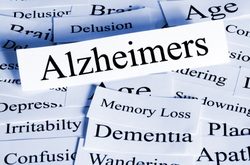 I've just been reading about these two concepts for Alzheimer's care, which frankly could completely change the face of caregiving for families dealing with this difficult disease. Given that one of the biggest problems for family caregivers caring for their loved one at home is isolation/depression, the chance to be with a group of other caregivers (and care receivers) in an enjoyable social setting provided by the Memory Cafe is a perfect boost to mental and emotional health. Even respite care, though very necessary, doesn't provide the same kind of supportive, warm, interactive environment in which to simply exchange conversation, ideas and enjoy the company of others who completely understand the challenges of the Alzheimer's journey. It benefits both the caregiver and receiver to have this type of socially stimulating environment. It is not a "support group" for caregivers, since the aim is not to provide education, problem solving, or information, but rather just to have fun! The concept for Memory Cafes is really beginning to catch on in England, and is now being actively advocated here in the US as well. The focus is on positive reinforcement among peers, laughter, food and simple pleasure in the company of others who are going through the same journey -- without any stigma attached. After all, other caregivers will be much more understanding of behaviors that might cause embarassment in a public setting. According to John T. McFadden, in an article written for the Alzheimer's Reading Room: A Reminder: Why We Need Memory Cafes, "Memory Cafes are, first and foremost, a setting in which persons with memory loss can share fun and laughter with their care partners and friends in a setting free from awkwardness and stigma." Speaking as a former caregiver, I think this is a truly wonderful idea, one whose time has come! Mr. McFadden has written a newly released book to champion the cause, titled, Aging Together: Dementia, Friendship, and Flourishing Communities. He and his wife are planning to visit existing Memory Cafes in England in order to refine a model for use in America. This is a concept we should most definitely support. It just makes sense to tap this important resource we have in each other -- our sense of friendship and community, which can be an invaluable help to those on the front lines of Alzheimer's. The second concept, which is new to me, but has been practiced at the Hebrew Home at Riverdale in New York for the past 10 years, is overnight care for dementia patients to allow caregivers a good night's rest at home. This innovative concept makes 24-hour use of the nursing home facility, to provide day care from 8:30am to 4 pm and overnight care from 7 pm to 7 am. The program creates a sort of party atmosphere for the participants, with music, marimbas, and dancing as well as singalongs, crafts, and therapy sessions that last till dawn. There is also provision made for those whose Alzheimer's may be more advanced, which includes soothing sounds, aromatherapy, massage and touch therapy. If you would like to read more about this, here's a link to an Associated Press article appearing in the Wall Street Journal, updated October 1, 2012, titled: Overnight dementia 'camp' allows caregivers rest. Because so many Alzheimer's patients are very wakeful and sometimes agitated at night (called Sundowning), it creates major problems for families when their sleep is disrupted night after night by this behavior. Again, from a personal experience perspective, this was the single most insurmountable problem for my family -- sleep deprivation for months on end. It errodes a person's health, sanity, and makes the demands of caregiving impossible to continue. It is a major complaint of Alzheimer's caregivers and one of the main reasons for institutionalizing their loved one. It doesn't have to be if there are more programs for overnight respite care developed around the country. It really makes perfect sense to use facilities around the clock (with different shifts of staff, obviously), so that families can rest and resume their care duties after a good night's sleep. I would love to hear your feedback on these two concepts and any personal stories you'd like to share about how your family is affected by these challenges of caregiving. Feel free to comment below. 5/4/2012 IsolationI just read a blog post by Gail Sheehy, author, speaker, caregiver advocate, and general mover & shaker. Her book, Passages in Caregiving: Turning Chaos into Confidence, is featured on the Books Page of this website. Her post is titled, "What can bring caregivers out of the house before they go nuts?" Yes, the title caught my eye. It's a wonderful post about a newly formed Caregiver Coalition in Jacksonville, Florida, which recently had a huge Expo for the estimated 150,000 family caregivers in the city. It was a phenomenal success and the various agencies which form the Coalition are seeing how underserved this segment of the population actually is, and how starved for information. Sheehy's blog is calling us to action to form similar coalitions all over the country to support the 65 million caregivers -- yes, that number is right! And, the real consequences to the health, mental, physical & emotional, for these unpaid family caregivers is astronomical. She cites stress, anxiety, depression, alcohol & substance abuse, high blood pressure, obesity, diabetes, and the list is endless, as major issues for the 45-55 age group that forms the Boomers caregivers brigade.
I absolutely and heartily agree! Having experienced some of these problems first hand, and realizing how deep this need goes, and how many millions of people are affected, if we don't act now, and really grab this tiger by the tail, finding real, practical and accessible solutions, we are going to have a bunch of nutty, stressed out isolated folks on our hands! Check out the blog at her website: www.gailsheehy.com/blog/592/what-can-bring-caregivers-out-of-the-house-before-they-go-nuts- |
About Karen
Karen is a compassionate, enthusiastic student of life, who cared for her mother for 17 years. She brings her insights, compassion, experience and desire to share knowledge and healing to this ongoing conversation with others on the caregiving path. If you are caring for a parent, spouse, friend or other loved one this site offers sanity-saving tips, open-hearted self-care ideas, and an open forum for discussion, connection and sharing resources for the journey. Archives
October 2021
CategoriesAll Acceptance Aging Together Alan Cohen Alive Inside Movie Alzheimer's Alzheimer's Prevention A Mind Of Your Own Anxiety Aromatherapy Audio Therapy For PTSD Austin Air Hepa Filter Autism Back Care Video Beginner's Mind Being Present Blessing For Caregivers Books Brain Insulin Butterfly Story Calm Calm.com App Care For Veterans Caregiver Advocate Caregiver Coalition Caregiver Comfort Kit Caregiver Guilt Caregiver Retreat Caregiver's Serenity Prayer Caregiver Stress Caregiver Support Care Giving Caregiving Vulnerability Care In Hospital Caterpillar Into Butterflies Chamomile Tea Cindy Laverty Comedian Computers & Exercise Crisis Dan Cohen Deepak Chopra Delirium Depression Diabetes Disaster Preparedness Distractions Dr. Dharma Singh Khalsa Dr. Oliver Sacks Eden Alternative Eldershire Elizabeth Dole Foundation Emergency Planning Emergency Preparation Emerson End Of Caregiving Enough Already Escapism Essential Oils Food Safety Forgiveness Funny Stories Gaiam.com Gail Sheehy Gift Of Alzheimer Gift Of Healing Presence GMO Food Green House Project Gregory Fricchione Md Grief Guilt Happy Light Healing Holding Hands Home As Sanctuary Hope Hospital Caregiving Hospital Stay Humor Inspirational Reading Ipods For Nursing Homes Isolation Jacksonville James E. Miller John Denver Johns Hopkins Study John T. McFadden Jon Kabat-Zinn Kelly Brogan Kirtan Kriya Meditation Lao Tzu Laugh Laughter Lavender Loneliness Loss Of Purpose Love Love In The Nursing Home Maya Angelou Mayo Clinic Mayo Clinic Alzheimer's Blog MD Meditation Meditation Garden Melatonin Memory Memory Cafe Military Caregiver Mindfulness Meditation Mr. Bean Music Music & Alzheimer Music And Memory Neurological Research Noise Pollution Operation Family Caregiver Opportunity Overnight Respite Care Pandemic Passages In Caregiving Patience Paul Coelho Peace Post-traumatic Stress Disorder Power Of Love Prayer PTSD Quality Of Sleep Radical Contentment Relaxation Releasing Problems Renewal Research Respite Rewind Rodney Yee Rosalynn Carter Rosalynn Carter Institute For Caregiving Rowan Atkinson Sanctuary Sanity Self Care Serenity Silence Sleep Slowing Time Solutions Soothing Music Stress Stress Relief Sun Sunshine Support For Caregivers Tai Chi Thanksgiving The Care Company The Kiss Time Traumatic Brain Injury Travel With Alzheimer's Person Treat VA Caregivers Valentine's Day Verilux Veteran Farms Veterans Veteran Suicide Vitamin D Wayne W. Dyer Wellness Wendell Berry White Noise William H. Thomas Worry Yoga Yoga Video |
Caregiver Wellness
Popular pages on this site:
|
Self-Care Practices
Explore what works for you:
|
Original content © 2012-2023 Karen Bonnell all rights reserved
